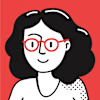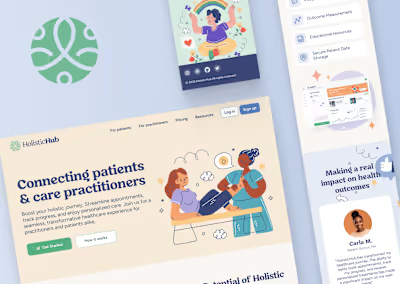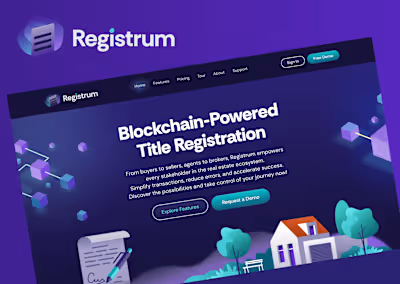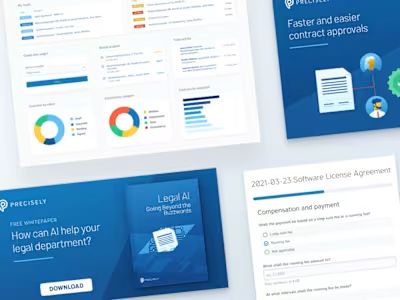Making wine pairing app magical
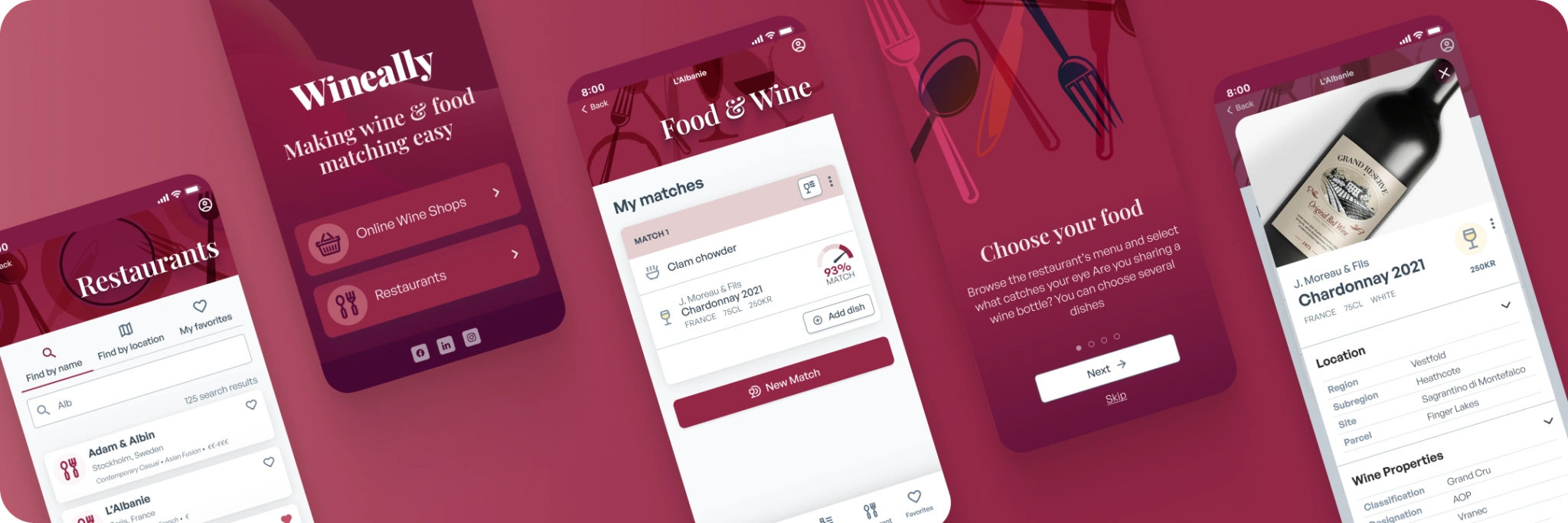
Wineally wanted everyone to perfectly match food & wine. With an impressive wine database and matching algorithm, they had the foundations for a great product. However, adoption of their app was slow and they needed to find out a way for their users to fall in love with wine matching.
Read on to see how I worked with them to align their app with their users’ needs.
Details
Year: 2023
Duration: 3 months
Client: Wineally AB, Sweden (through EC solutions)
Role
UX Research
Wireframing
Testing
Visual design
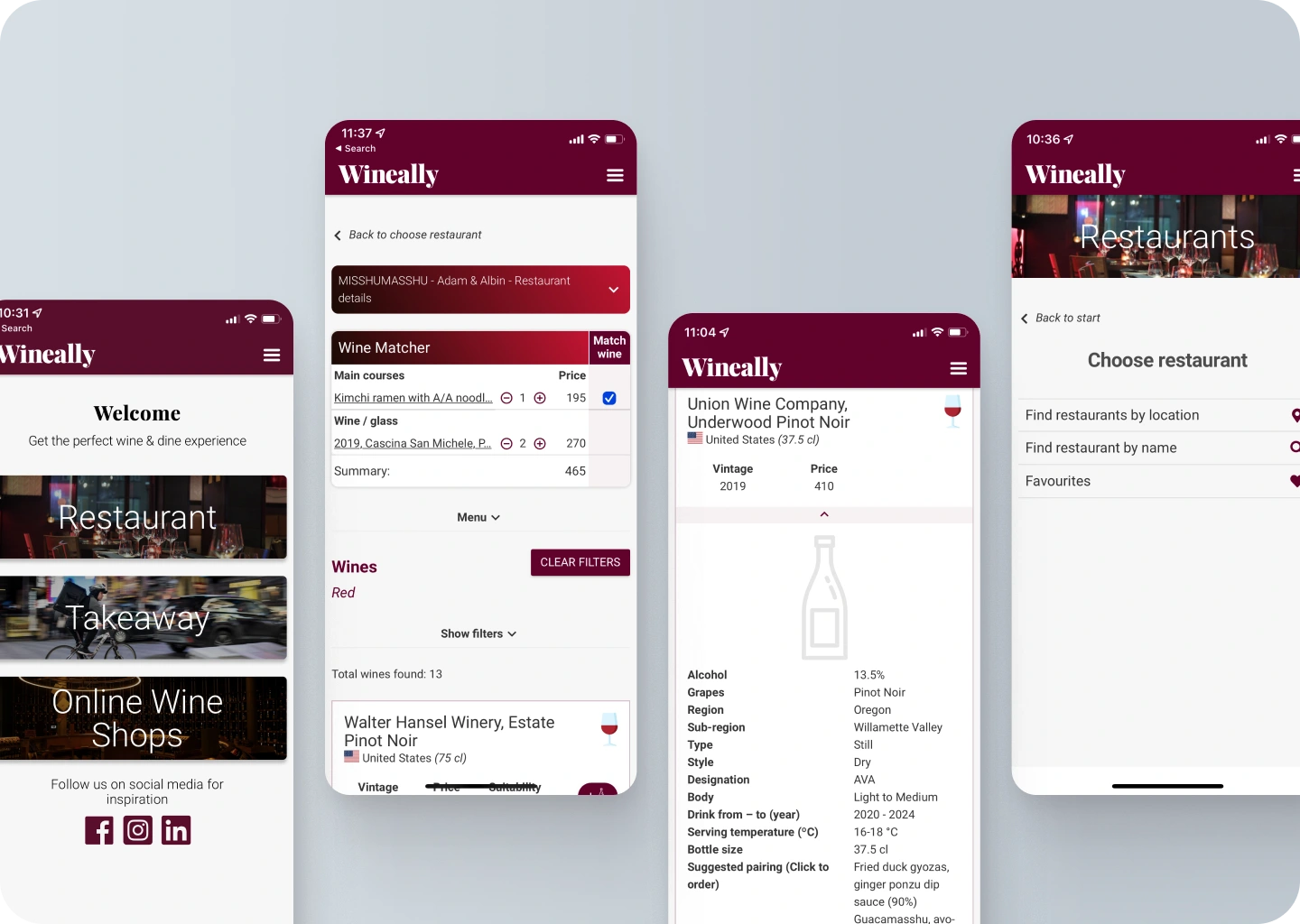
Problem statement
Wineally had a very low adoption rate on their wine pairing mobile app. The first version of their app was focused on waiters at a restaurant and needed to be rethought to work for consumers.
The little feedback they had was not positive as users had a hard time figuring out what the app was for and how to use it.
Quantitative analysis
We ran a survey with 48 participants, to get information about their dining & wine consumption habits, experience with wine recommendation apps, and desired functionality and information.
We got insight on the type of information potential users found useful to choose a wine, and what other apps were doing right.
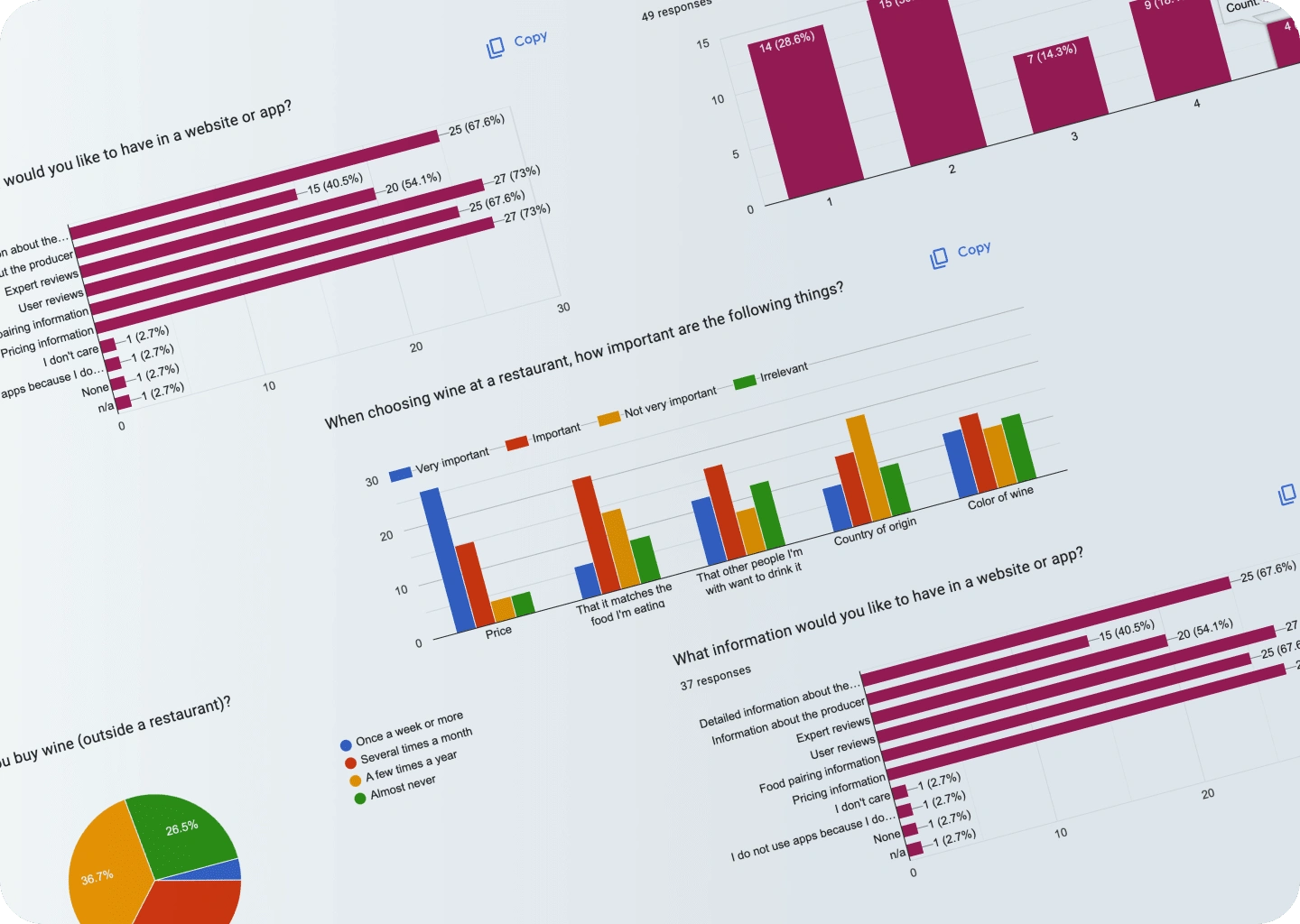
ser flows
Based on the research I broke down user goals into specific tasks, grouped them into screens, and created logical flows.
We now had a blueprint for starting to visualize the UI with all the elements and functionality needed
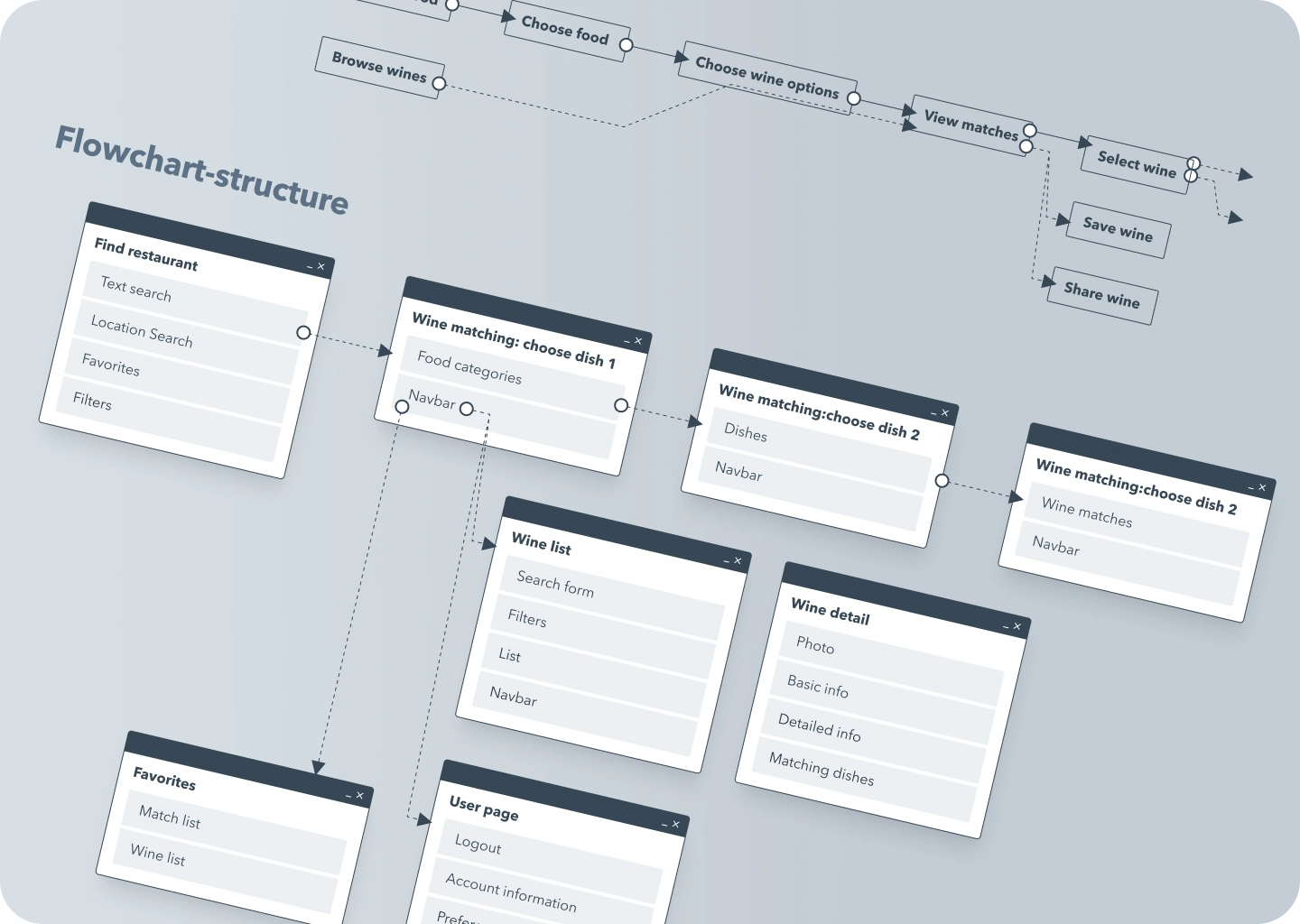
Ux audit
For the existing flows that would be kept in the redesign (login, onboarding, venue choice), I did a heuristic UX evaluation, pinpointing the usability problems present and possible solutions.
I identified the problems and areas of opportunity to be tackled in the redesign
Wireframes
Based on the user flows and heuristic evaluation, I created wireframes for each flow, and then created a prototype
The wireframes allowed us to visualize the page structure and refine the flows and functionality of the app

User testing
We ran a remote unmoderated usability test with 20 users. The test consisted in 3 tasks (choosing tasks, choosing wine options & matching, and adding to favorites), evaluation on the percieved ease of each task, and general open feedback.
The results were overall positive, with a high success rate, however, I did identify a few areas of ambiguity and confusion that should be adressed.
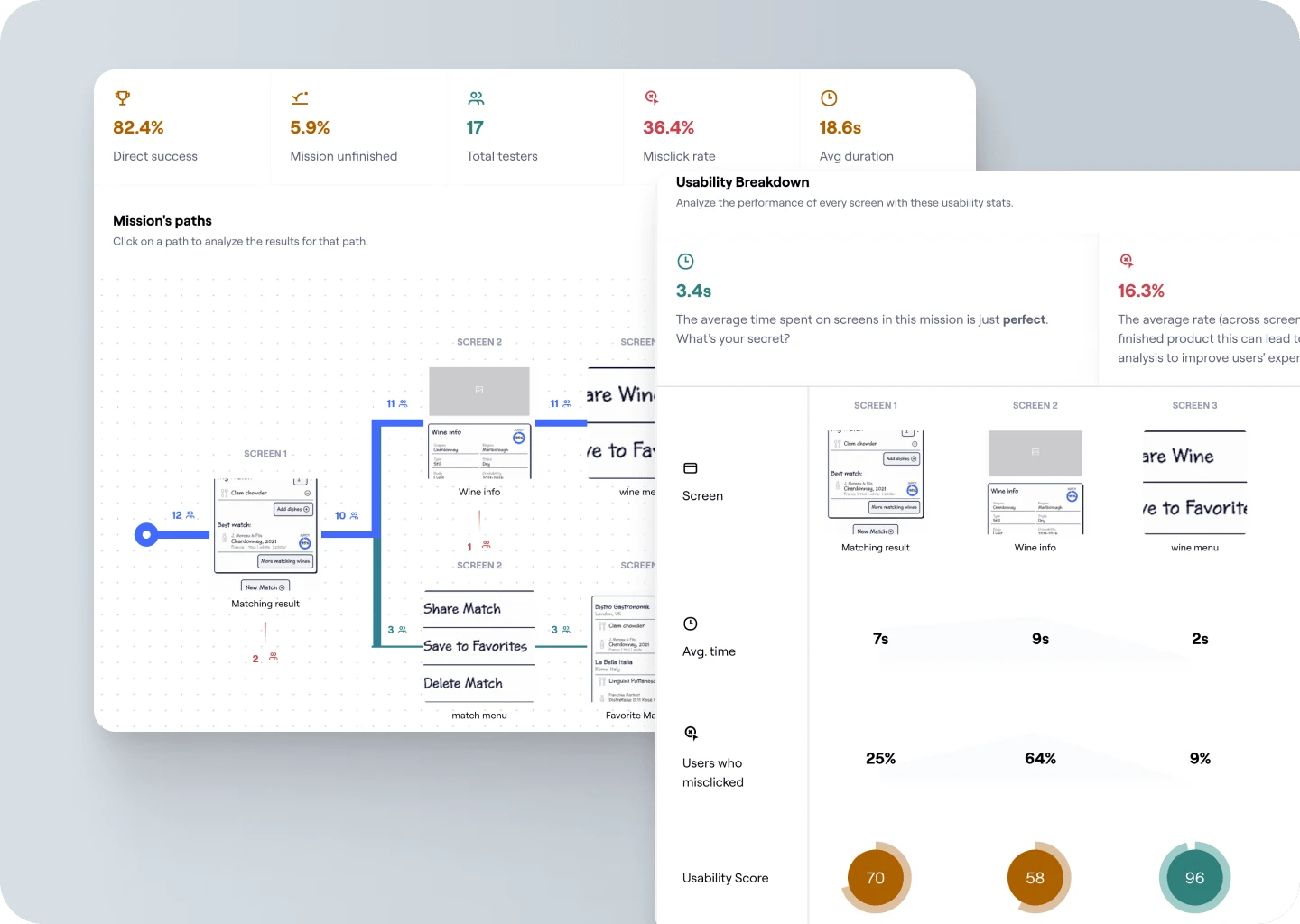
Visual design & Prototyping
With the wireframes as a starting point, I developed the app interface, keeping the brands’ visual elements but with an updated look and more usable. I made sure to use established mobile design patterns that would be familiar to users.
I implemented reusable design components that could serve as a base for all future development.
The new app is more streamlined, showing only the elements relevant to the current task. The elements’ structure and look help users better navigate and interact. The visual style matches the brand better and gives a more sxclusive feeling.
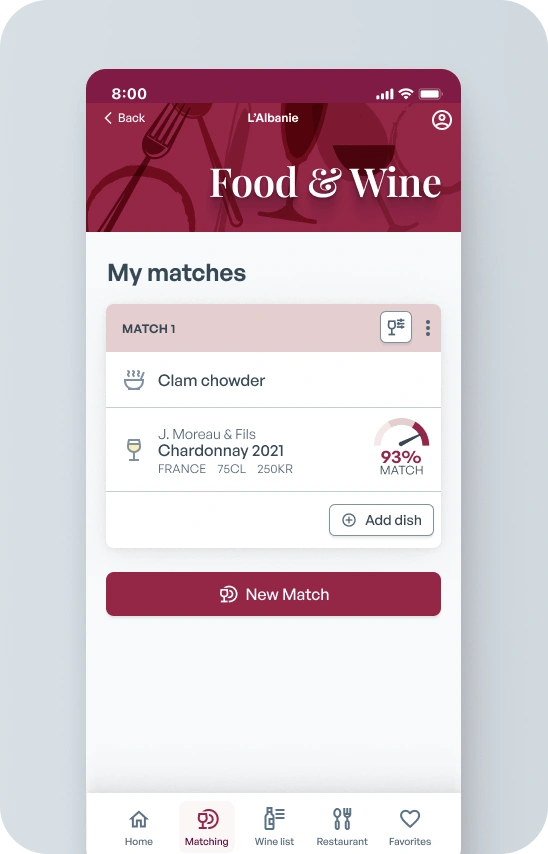
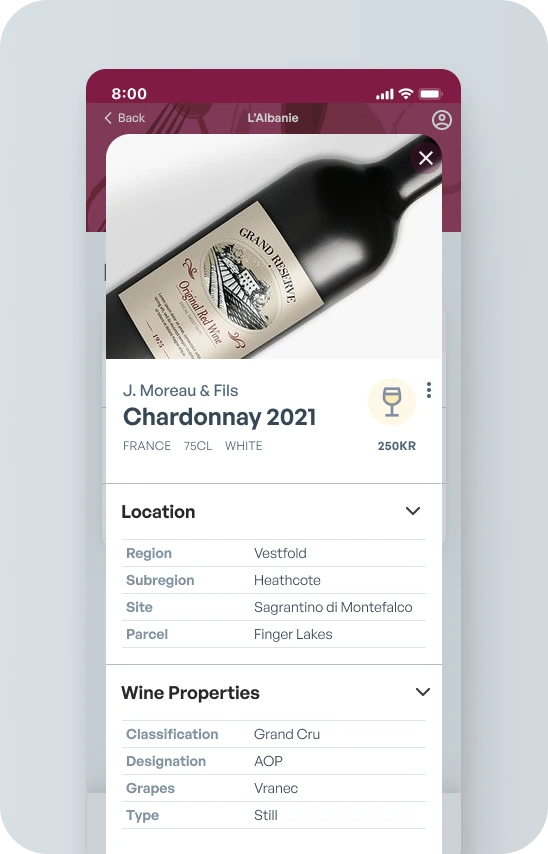
Wine details
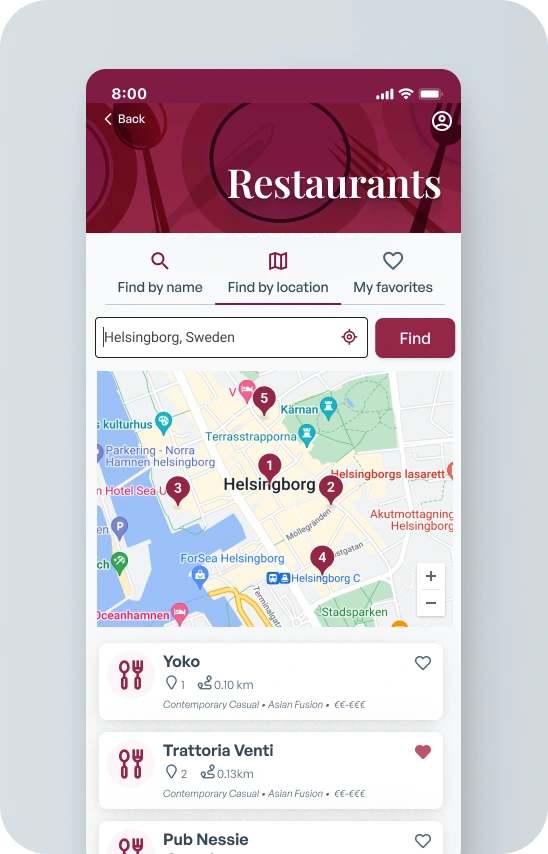
Project Outcomes
The new design achieved the following:
Functionality and user flows better match the users’ mental model and are more intuitive.
The simplified interface makes it easy to find the relevant information
Styling is modern, attractive and matches the target market better
The process makes the app’s perceived value higher, as the results are presented in a more straightforward and appealing way.
Like this project
Posted Mar 22, 2024
Through research and user-centric design, I revamped Wineally's wine & food matching app.
Likes
0
Views
23
